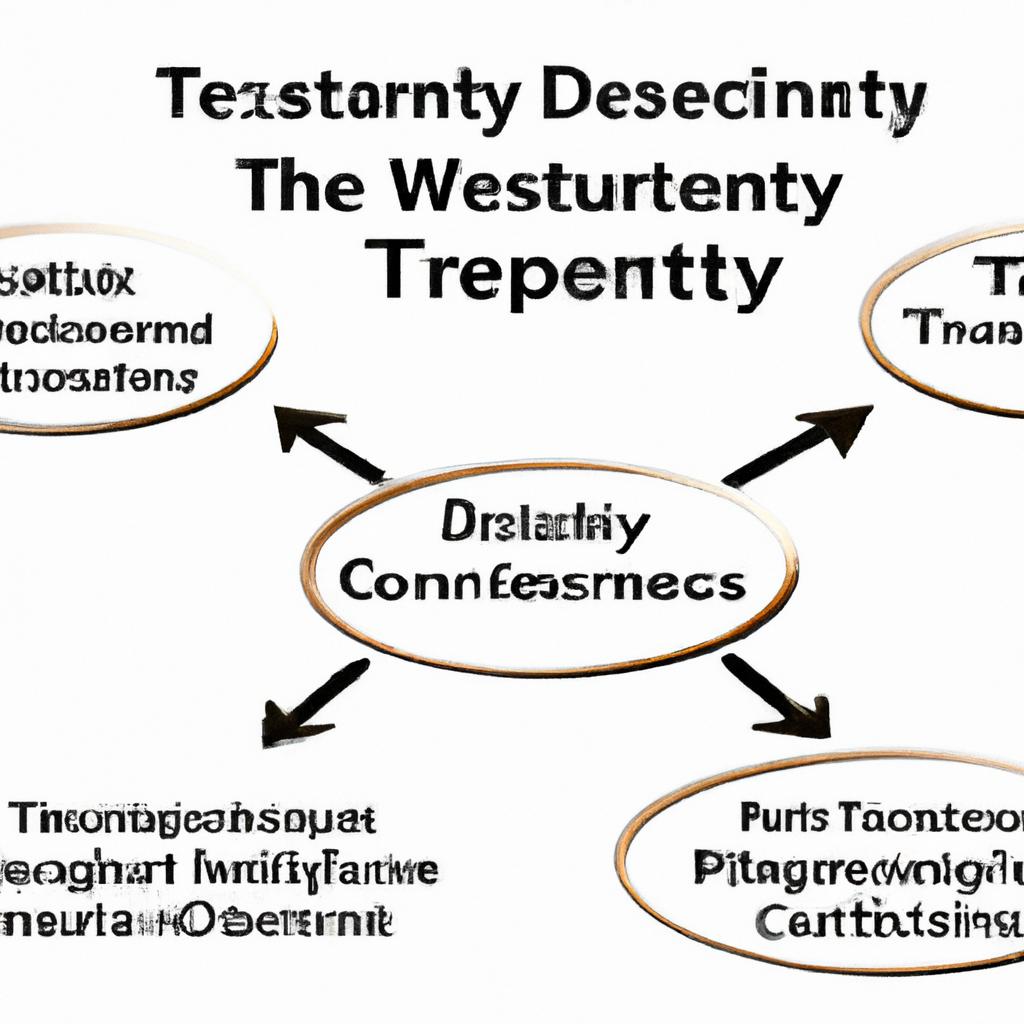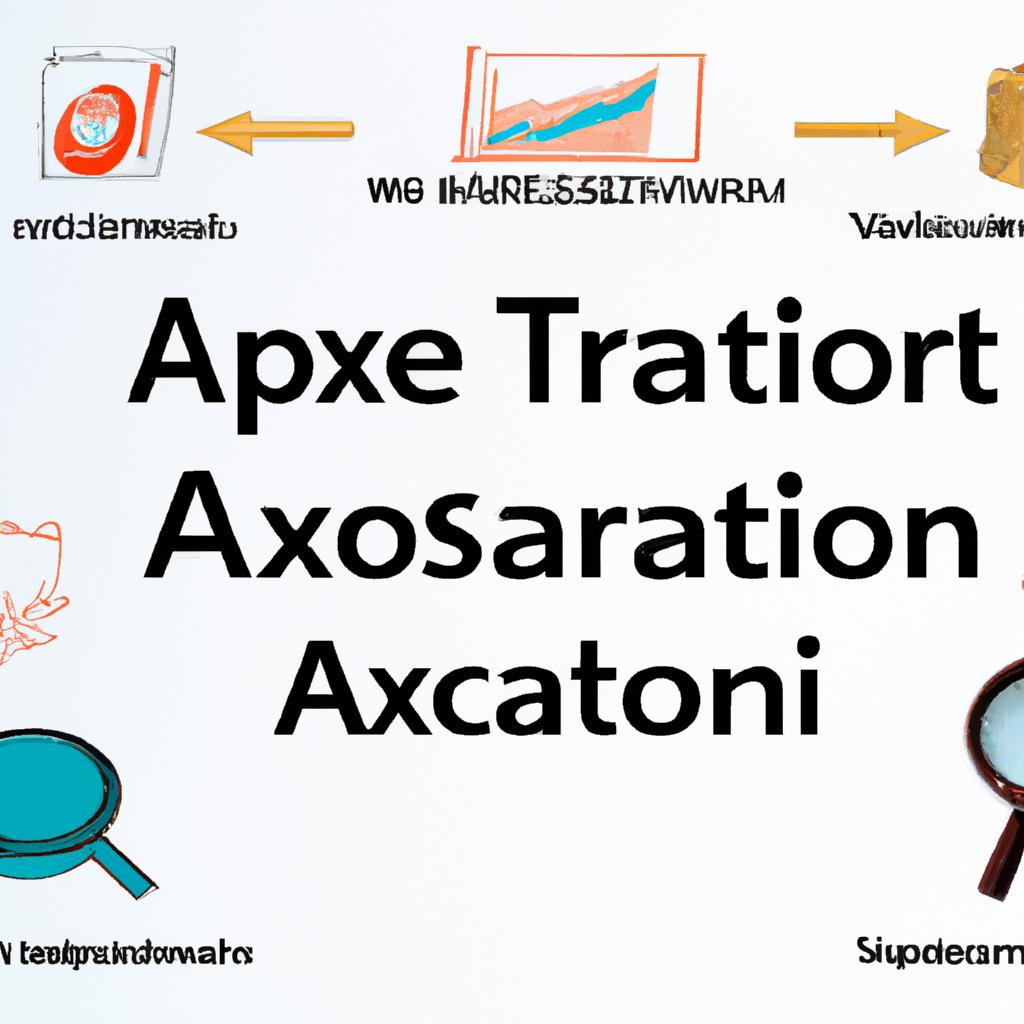In the intricate tapestry of estate planning, discretionary trusts stand as a cornerstone of strategic asset management. As experienced practitioners navigating the labyrinthine legal landscape, the Morgan Legal Group invites you to delve into the nuances of this versatile tool in our comprehensive guide. Nestled in the bustling heart of New York City, our team specializes in crafting tailored solutions in estate planning, probate, elder law, Wills, and trusts. Join us as we unravel the complexities of discretionary trusts and unlock their potential to secure your financial legacy.
Understanding the Purpose and Benefits of Discretionary Trusts
Discretionary trusts are a powerful estate planning tool that provides flexibility and control over how assets are distributed among beneficiaries. Unlike other types of trusts, a discretionary trust allows the trustee to use their judgment and discretion when distributing assets, rather than following strict guidelines outlined in the trust document. This means that the trustee has the ability to adapt to changing circumstances and needs of the beneficiaries, ensuring that the trust can continue to provide for future generations.
One of the key benefits of a discretionary trust is the ability to protect assets from creditors, lawsuits, and divorce settlements. By placing assets in a discretionary trust, they are no longer considered part of the beneficiary’s personal assets, making them less vulnerable to claims from outside parties. Additionally, discretionary trusts can also be used to provide for beneficiaries who may not be capable of managing their own finances, such as minor children or individuals with disabilities. This ensures that the assets are used in a way that benefits the beneficiary, without the risk of mismanagement or exploitation.

Key Features and Flexibility of Discretionary Trusts
Discretionary trusts offer a high degree of flexibility and control for settlors looking to protect and distribute their assets in a specific manner. One key feature of discretionary trusts is the ability for the trustee to make decisions on how and when to distribute the trust assets to beneficiaries, unlike fixed trusts where distributions are predetermined. This flexibility allows the trustee to consider the individual circumstances of each beneficiary and tailor distributions accordingly.
Another important aspect of discretionary trusts is the ability to designate a class of beneficiaries rather than specific individuals. This allows for the inclusion of future beneficiaries such as unborn children or grandchildren, providing a level of long-term planning and asset protection. Additionally, discretionary trusts can be tailored to accommodate changes in family dynamics or financial circumstances, ensuring that the trust remains relevant and effective over time.

Navigating Tax Implications and Asset Protection Strategies
Creating a discretionary trust can be a powerful tool in estate planning, allowing the grantor to retain some control over how assets are distributed while still providing protection for beneficiaries. In a discretionary trust, the trustee has the discretion to decide how and when to distribute assets to beneficiaries based on their needs and circumstances. This can be particularly useful in protecting assets from creditors, divorce settlements, or irresponsible spending.
One key benefit of a discretionary trust is the ability to protect assets from being squandered by beneficiaries. By giving the trustee the power to make decisions about distributions, the grantor can ensure that assets are used wisely and in accordance with their wishes. Additionally, discretionary trusts can provide tax advantages, as assets held in the trust may be subject to favorable tax treatment. By carefully structuring a discretionary trust, individuals can navigate tax implications and asset protection strategies to effectively preserve wealth for future generations.
Considerations for Establishing and Managing a Discretionary Trust
When considering establishing and managing a discretionary trust, there are several key factors to keep in mind to ensure the trust operates smoothly and achieves its intended goals:
- Trustee Selection: It is crucial to carefully select a trustee who is trustworthy, competent, and capable of managing the trust assets in the best interests of the beneficiaries.
- Beneficiary Criteria: Clearly define the criteria for determining who the beneficiaries of the trust will be and under what circumstances they will receive distributions.
- Asset Protection: Utilize the discretionary nature of the trust to protect assets from creditors, lawsuits, and other potential threats.
Additionally, regular review and updating of the trust document, proper record-keeping, and diligent adherence to legal and tax requirements are essential for the successful establishment and management of a discretionary trust.
Q&A
Q: What is a discretionary trust?
A: A discretionary trust is a legal arrangement in which the trustee has discretion over how to distribute the trust’s assets to the beneficiaries.
Q: How does a discretionary trust work?
A: In a discretionary trust, the trustee has the authority to decide how and when to distribute the trust’s assets to the beneficiaries. This flexibility allows the trustee to tailor distributions to each beneficiary’s individual needs.
Q: Who can benefit from a discretionary trust?
A: Discretionary trusts are commonly used by individuals who want to provide for their family members in a flexible and tax-efficient manner. They can also be beneficial for asset protection and estate planning purposes.
Q: What are the advantages of setting up a discretionary trust?
A: Some of the main advantages of discretionary trusts include flexibility in asset distribution, protection of assets from creditors, and potential tax benefits for beneficiaries.
Q: Are there any disadvantages to using a discretionary trust?
A: Disadvantages of discretionary trusts may include higher administrative costs, potential conflicts among beneficiaries, and the need for a trustee to make decisions on behalf of the beneficiaries.
Q: How can someone set up a discretionary trust?
A: Setting up a discretionary trust typically involves drafting a trust deed, appointing a trustee, and transferring assets into the trust. It is advisable to seek legal advice when establishing a discretionary trust to ensure all legal requirements are met.
In Summary
In conclusion, discretionary trusts offer a flexible and versatile way to manage and distribute assets, providing the grantor and beneficiaries with added protection and control over their wealth. It is important to consult with a professional advisor to ensure that a discretionary trust is the right option for your specific financial situation and goals. With careful planning and knowledgeable guidance, a discretionary trust can be a powerful tool for securing your family’s financial future.
 Feel free to refer to reputable sources for information and statistics.
Feel free to refer to reputable sources for information and statistics.
Discretionary Trusts: Understanding the Benefits and Usage
A discretionary trust is a popular legal instrument used in estate planning to manage and protect assets. Often referred to as a family trust, it allows the grantor to transfer assets to a trustee who then manages the assets on behalf of a group of beneficiaries. This type of trust offers several benefits, making it a useful tool for individuals and families looking to protect their assets and preserve their wealth. In this article, we will delve deeper into the details of discretionary trusts, their benefits, and how they can be practically implemented.
Understanding Discretionary Trusts
A discretionary trust is a legal arrangement where the trustee has the discretion to make decisions regarding the distribution of trust assets among the beneficiaries. It gives the trustee the authority to determine how the assets should be used, when they should be distributed, and to which beneficiaries. The trustee is typically given specific instructions by the grantor, known as the trust deed, on how to manage the assets. This allows for flexibility and customization to meet the unique needs of the grantor and beneficiaries.
Benefits of Discretionary Trusts
There are several benefits of using discretionary trusts, including tax advantages, asset protection, and preserving family wealth. Let’s explore each of these benefits in more detail.
1. Tax Advantages
One of the primary reasons individuals and families opt for discretionary trusts is the tax advantages they offer. One of the most significant benefits is the potential reduction of estate taxes. When assets are held in a discretionary trust, they are not considered part of the estate and are not subject to estate taxes. Additionally, the trustee has the discretion to distribute the assets in a tax-efficient manner, reducing tax liabilities for the beneficiaries.
2. Asset Protection
Discretionary trusts offer a high level of asset protection, making them an attractive option for individuals looking to safeguard their wealth. The trust assets are held separately from the beneficiaries, making them less vulnerable to potential creditors. This can be especially useful in protecting family assets from lawsuits, divorce, or bankruptcy.
3. Preserving Family Wealth
Discretionary trusts are an ideal solution for individuals looking to preserve their family’s wealth for future generations. By designating specific beneficiaries, the grantor can ensure that the assets are kept within the family and are not at risk of being diminished or lost. This can provide peace of mind for individuals and allow them to leave a lasting legacy for their loved ones.
Practical Tips for Implementing a Discretionary Trust
When considering a discretionary trust, it is essential to consult with a legal professional to ensure all legal requirements are met. Here are some practical tips to keep in mind when setting up a discretionary trust:
1. Choose the Right Trustee
The trustee plays a crucial role in the management of a discretionary trust. It is essential to select a trustworthy and responsible individual or company to fulfill this role. They should have a good understanding of the trust’s objectives, be able to carry out their duties impartially, and have the necessary legal and financial knowledge to manage the trust effectively.
2. Clearly Define the Beneficiaries
It is vital to be clear and specific when defining the beneficiaries of the trust. This includes naming the individuals or group of individuals who will benefit from the trust and outlining the terms and conditions for distribution.
3. Regularly Review and Update the Trust Deed
A discretionary trust should be reviewed regularly and updated as needed to ensure that it aligns with any changes in the grantor’s circumstances or wishes. This can be done to accommodate any changes in the beneficiaries, assets, or tax laws.
Case Study: John’s Success with a Discretionary Trust
John, a successful business owner, wanted to pass his wealth down to his children without incurring significant tax liabilities. He decided to set up a discretionary trust, naming his children as beneficiaries. The trust was funded with his business assets and managed by a trustee. As a result, John’s children could benefit from the trust’s assets, and John could leave a lasting legacy for his family while minimizing tax implications.
First-Hand Experience: A Family’s Security with a Discretionary Trust
Samantha and her husband have a young family and significant assets, including a property portfolio. They wanted to ensure that their assets were protected and preserved for their children in the event of any unforeseen circumstances. They set up a discretionary trust and named their children as beneficiaries. This gave them peace of mind knowing that their assets were secure and could be passed down to their children without any potential risks.
Conclusion
In summary, discretionary trusts offer several benefits, making them a valuable legal tool for individuals and families looking to protect their wealth and assets. They offer tax advantages, asset protection, and the ability to preserve family wealth for future generations. With proper planning and guidance from a legal professional, a discretionary trust can be an invaluable tool in estate planning.

